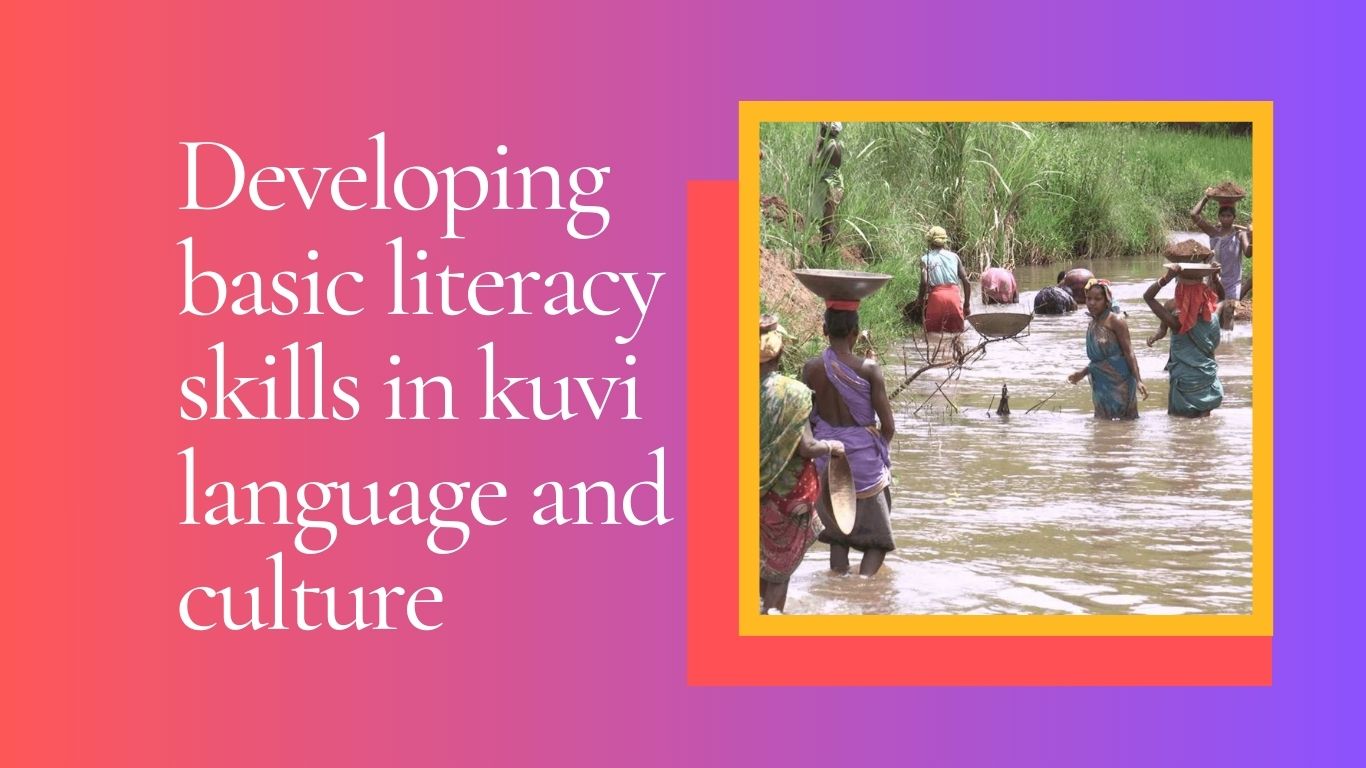The Kuvi are a thriving minority living deep in the southern Indian regions of Odisha and Andhra Pradesh with a rich cultural heritage. To truly comprehend the identity, culture, and way of life of the Kuvi people, one must speak their language. This blog delves deeply into everyday life and Kuvi culture to examine the practical uses of basic literacy in kuvi language.
Deciphering basic literacy in kuvi language
The Kuvi tribe speaks the Kuvi language, which is primarily Dravidian in character, in the Eastern Ghats. The community’s unique phonetics and grammar are a reflection of its long-standing traditions and ties to the region. The language represents cultural survival against modern influences and a link to the ancestors for a large number of Kuvi people.
A Brief Overview of Kuvi Culture
The Kuvi people have a highly complex way of life, consisting of customs and festivals honoring their ties with nature and each other. Two vibrant celebrations of the community and customs, Goti Pua and Chaitra Parab, are prime illustrations of Kuvi culture in action.
The Fundamental Principles of Kuvi Customs
The festivals and customs of the Kuvi people demonstrate how rich their way of life is and how firmly rooted their link is with nature and each other. Goti Pua and Chaitra Parab offer the best views of Kuvi culture in their most genuine form, with their vibrant villages and rituals. Regular participants in social events and group activities are more likely to develop strong relationships with their sense of self and community.
The Advantages of Literacy in Mother Tongue
Firstly, mother language literacy is essential for the Kuvi group to maintain their cultural identity and further their educational goals. Specifically, the goal of Kuvi’s literacy initiatives is to facilitate people’s ability to read, write, and speak in their native tongue. Furthermore, these efforts are beginning to pay off. Consequently, initiatives and organizations are currently working to support the effect of language on personal and group development.”
Problems and Theories
Even though the Kuvi people strive to maintain and promote their history, their language and traditions remain fundamental to their culture. Socioeconomic disparities and limited access to educational resources inhibit the success of basic literacy in kuvi language initiatives. However, as part of its dedication to preserving its language and cultural past, the community is exhibiting broad grassroots initiatives and support for mother tongue education.
Looking Ahead
As the Kuvi community navigates the complexities of contemporary life while, at the same time, preserving their ancient traditions, the significance of upholding the Kuvi language and culture is, indeed, immeasurable. Furthermore, through collaboration in education, cultural exchange, and community backing, the resilience and resolve of the Kuvi people are unmistakably evident. Moreover, their journey serves as a compelling illustration of the enduring influence of language on individual identity and, consequently, the fostering of unity in a multicultural society.
The Kuvi language and culture narrate a compelling tale of endurance, heritage, and communal spirit. By embracing their indigenous language and valuing their cultural practices, the Kuvi community not only honors their past but also secures a robust base for a vibrant future rooted in togetherness and integrity.

